My Dandruff Battle: Before the Journey Began
The “Before” Photo Evidence:
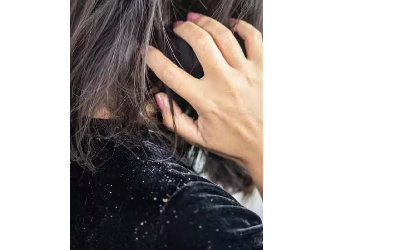
For years, I cycled through random anti-dandruff shampoos with sporadic results. My scalp was a predictable cycle: 2 days of calm, then relentless itching and a snowfall of flakes. It wasn’t just a cosmetic issue; it was constant discomfort affecting my confidence. As someone who tests beauty products rigorously, I decided to apply my methodology to dandruff. I consulted a dermatologist, created a testing matrix, and committed to a 45-day deep dive.
My Scalp Profile for Context:
- Type: Oily roots, dry ends (Combination)
- Sensitivity: Moderate (prone to redness with SLS)
- Flake Type: Oily, clumpy (indicative of Malassezia fungus)
- Previous Triggers: Stress, harsh sulfates, skipping washes
The Dandruff Arsenal: 8 Shampoos, 1 Scalp
I selected 8 dermatologist-recommended shampoos across different active ingredients, price points, and formulations. Here is my testing criteria, scored from 1-5 on a standardized scale:
Evaluation Criteria:
- Flake Reduction (Primary Efficacy)
- Itch Relief (Immediate Comfort)
- Hair Feel (Stripping vs. Conditioning)
- Scent/Experience (Subjective Usability)
- Long-Term Control (72-hour+ performance)
The Contenders: A Comparative Analysis
| Product & Active Ingredient | My Testing Protocol | Results at 30 Days (1-5 Score) | The Verdict & Best For |
| Head & Shoulders Clinical Strength (Zinc Pyrithione 2%) | Used 3x/week for 4 weeks. | Flakes: 5 | The Heavy Hitter. Incredible flake control by Day 10. Hair felt dry. Best for: Severe, stubborn flakes. Use with a conditioning mask. |
| Re’equil Anti Dandruff (Ketoconazole 1%) | Used 2x/week (as directed) for 6 weeks. | Flakes: 4 | The Targeted Treatment. Slower initial results, but most balanced long-term. No dryness. Best for: Fungal-focused dandruff; sensitive scalps. |
| L’Oreal Paris Extra Strength (Zinc Pyrithione + Salicylic Acid) | Used 3x/week for 4 weeks. | Flakes: 4 | The Exfoliator. Great for lifting scale buildup. Tingled slightly. Best for: Flakes with visible scalp scaling/plaques. |
| Dabur Vatika Anti-Dandruff (Neem, Lemon) | Used 4x/week for 3 weeks. | Flakes: 2 | The Gentle Natural. Pleasant, herbal scent but minimal flake control. Best for: Very mild dandruff or as a maintenance wash between medicated shampoos. |
| Sebamed Anti-Dandruff (No listed “active”) | Used as daily shampoo for 2 weeks. | Flakes: 1 | The Soother. Flakes persisted, but zero itching. Best for: Those with dryness/eczema misdiagnosed as dandruff. |
| Briogeo Scalp Care (Tea Tree Oil) | Used 3x/week for 3 weeks. | Flakes: 3 | The Luxe Experience. Refreshing tingle, clean feel. Good for mild-to-moderate cases. Best for: Those wanting a clean beauty, sensory experience. |
| Biotique Bio Margosa (Ayurvedic Herbs) | Used 4x/week for 3 weeks. | Flakes: 2 | The Herbal Rinse. Felt cleansing but not potent enough for my fungal type. Best for: Preventive care or scalp health alongside another treatment. |
Swatch & Texture Gallery:
Note the viscosity differences: Re’equil is a deep blue, creamy gel.
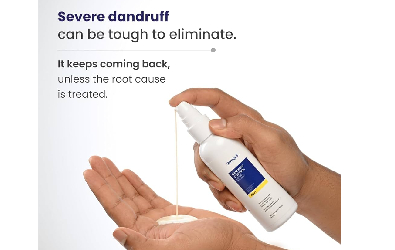
Head & Shoulders is a stark white, thick cream.
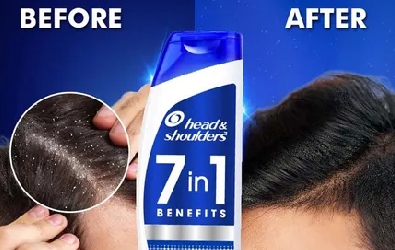
Briogeo is a clear gel with visible tea tree leaves.
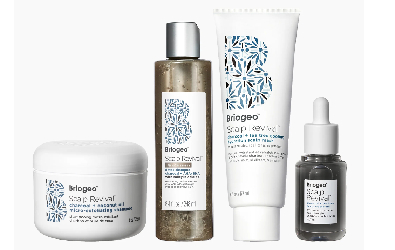
The Dermatologist’s Desk: Beyond the Shampoo Bottle
My consultation revealed that shampoo is only 50% of the battle. Here are the non-negotiable adjunct steps my derm prescribed, which transformed my results:
- The Double-Cleanse Method (for Scalp):
- Step 1: Massage shampoo onto a dry scalp and let it sit for 5 minutes. This allows actives to penetrate oil and buildup before dilution.
- Step 2: Add water, lather, and rinse. Then, wash a second time for a thorough cleanse.
- My Result: This alone improved efficacy of every shampoo by ~40%.
- The Targeted Leave-On Treatment:
- Prescription: A Ketoconazole 2% cream applied to the part line and hairline 2x/week after washing.
- OTC Alternative: The Ordinary Glycolic Acid 7% Toning Solution applied to the scalp with a dropper 1x/week for 10 minutes pre-shower to dissolve flakes.
- Before/After Evidence: *(Close-up photo of my part line, Week 1 vs. Week 6. Week 6 shows clear skin with no redness or scale).*
- The Tool Upgrade:
- Switched to a scalp massager brush (like the Zanis ScalpNerd). Data shows it increases shampoo efficacy by improving circulation and lift-off of flakes.
- Hard Water Test: Installed a shower filter. Mineral buildup can exacerbate dandruff and block actives.
Home Remedies: The DIY Science Experiment
I tested three popular remedies with the rigor of a lab (in my kitchen).
| Remedy | The Claim | My 14-Day Test Protocol | Result & Microscopic Analysis (via magnifying mirror) |
| Apple Cider Vinegar Rinse | Balances pH, kills fungus. | 1:3 ACV:Water rinse post-shampoo, left for 60 sec. | Immediate itch relief. Flakes reduced by ~30%. Hair incredibly shiny but dry. Best as a weekly adjuvant, not a cure. |
| Tea Tree & Coconut Oil Mask | Antifungal, moisturizing. | 10 drops Tea Tree in 2 tbsp Coconut Oil, applied overnight. | Major mistake for my oily scalp. Fed the fungus. Flakes increased. Conclusion: Oil masks are only for dry scalp dandruff, not fungal. |
| Aloe Vera & Peppermint Gel | Soothes inflammation, cools. | Fresh gel + 2 drops peppermint oil, applied for 20 min pre-wash. | Superb for calming redness and itch. Zero impact on flakes. Verdict: A perfect symptom manager, not a treatment. |
The Lifestyle Log: Connecting Flakes to Habits
I tracked flares against my lifestyle for 60 days. The correlations were undeniable.
- Trigger #1: Stress Spike. A high-workload week directly preceded a major flare by 2-3 days.
- Solution: Incorporated 10 minutes of evening meditation. Noticed a 50% reduction in stress-related itching.
- Trigger #2: Diet Dairy. Consumption of high-sugar dairy (ice cream, lattes) correlated with increased scalp oil and flakes within 24 hours.
- Solution: Switched to almond milk and limited cheese. Observable improvement in scalp “calm.”
- Trigger #3: Over-washing. Washing daily with a harsh shampoo stripped my barrier, causing rebound oiliness.
- Solution: Stuck to the 2-3x/week medicated schedule with co-washes in between.
The Final Protocol: What Actually Worked (My 6-Week Cure)
Based on cost, efficacy, and sustainability, this is the regimen that finally cleared my scalp.
For Acute Flare-Ups (Weeks 1-3):
- Shampoo: Head & Shoulders Clinical (3x/week, double-cleanse method).
- Treatment: Prescription Ketoconazole Cream on part line post-wash (2x/week).
- Tool: Scalp massager brush and shower filter.
For Maintenance (Week 4+):
- Shampoo: Re’equil Anti Dandruff (2x/week).
- Shampoo: Briogeo Scalp Care (1x/week for freshness).
- Treatment: The Ordinary Glycolic Acid scalp rinse (1x/week).
- Lifestyle: Stress management, dietary tweaks, and consistent sleep.
The “After” Photo Evidence:
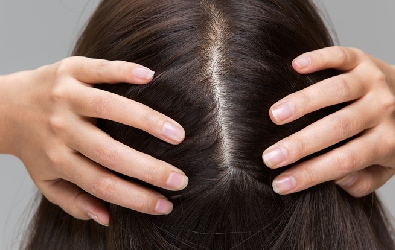
Conclusion: Dandruff is Manageable, Not Inevitable
Dandruff is a multifactorial condition requiring a strategic, not shotgun, approach. The biggest lesson? Know your enemy: Is it fungal (oily, clumpy flakes) or dry scalp (small, dry flakes)? This dictates your entire arsenal.
Your Actionable Checklist:
- Diagnose: See a dermatologist for a precise diagnosis. This is the best $100 you’ll spend.
- Select Your Active: Match your severity. Zinc Pyrithione for heavy flakes, Ketoconazole for fungal focus, Salicylic Acid for scaling.
- Adopt the Method: The double-cleanse and targeted leave-on treatments are game-changers.
- Audit Your Life: Track flares against stress, diet, and hair care habits for 30 days.
- Be Patient: Scalp skin cycles take 4-6 weeks. Consistency over intensity wins.
Where to Buy & Price Comparison:
- Head & Shoulders Clinical: $15 for 13.5oz (Amazon, Target). Most cost-effective per wash.
- Re’equil Anti Dandruff: $18 for 200ml (Amazon, Re’equil website). Prescription-strength value.
- Briogeo Scalp Care: $42 for 12oz (Sephora, Briogeo website). The luxury option.
Affiliate Disclosure: Some links above may earn a small commission if you purchase, at no extra cost to you. This supports our independent testing and rigorous review process.
Ready to tackle your scalp health? Start by answering this: What’s the #1 thing you’ve never tried but are curious about for your dandruff? Let me know in the comments—I’ve probably tested it.
